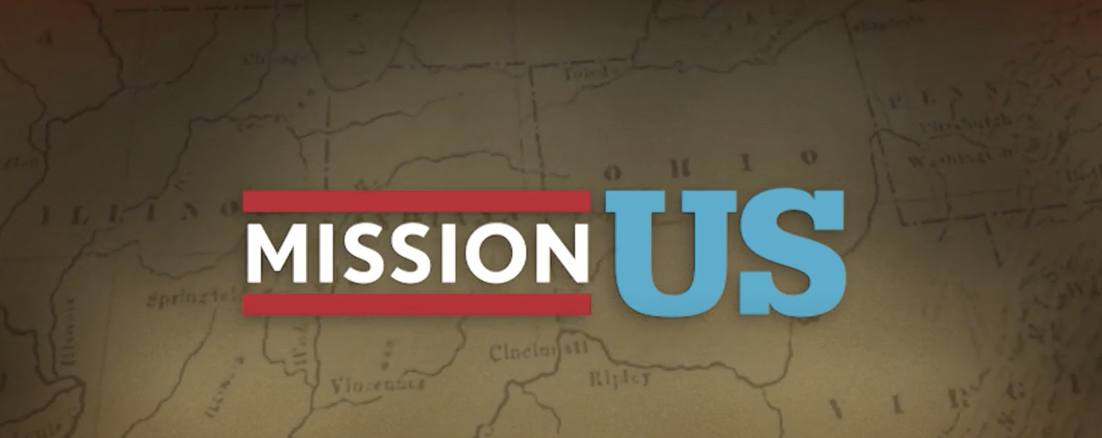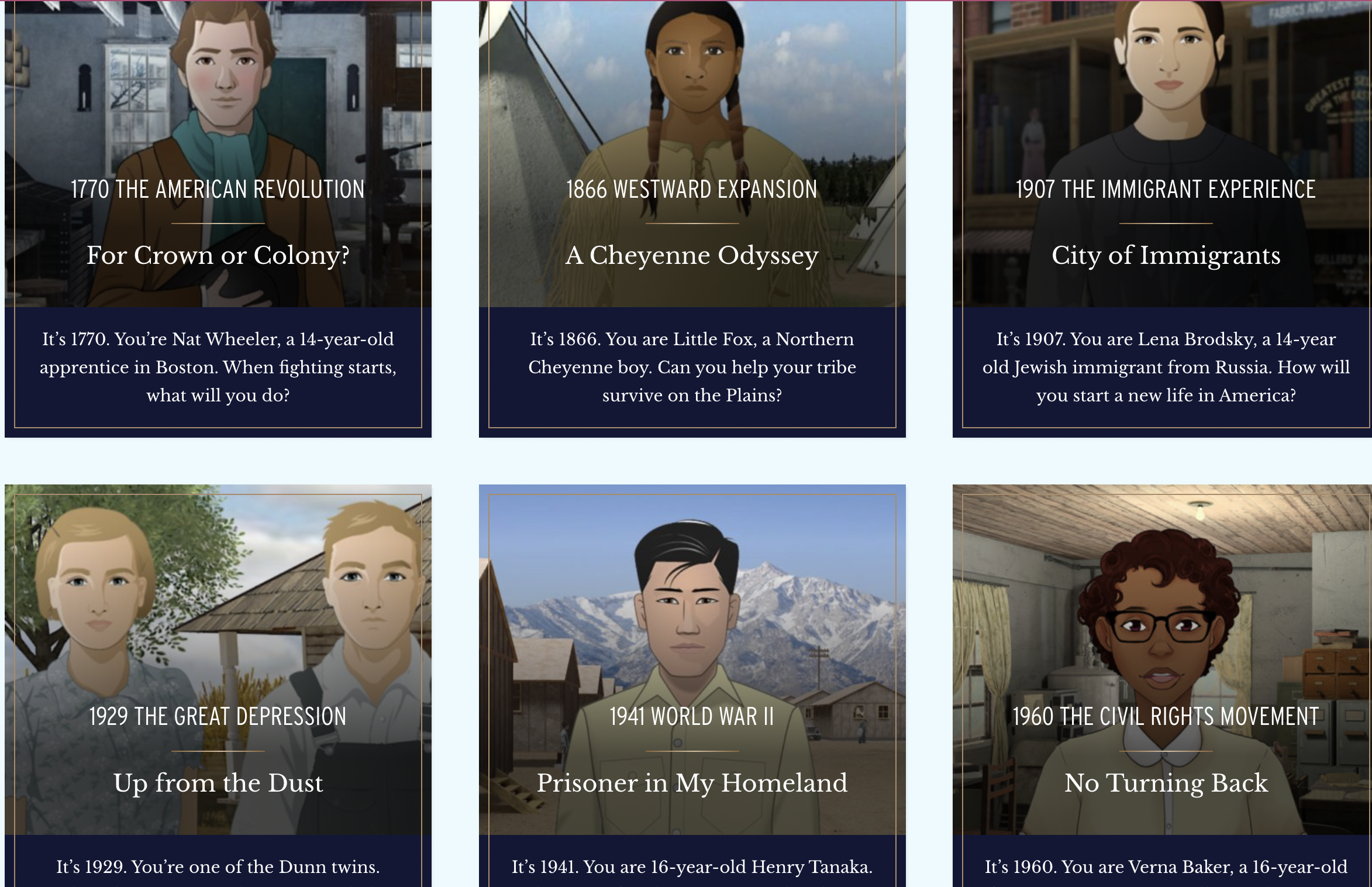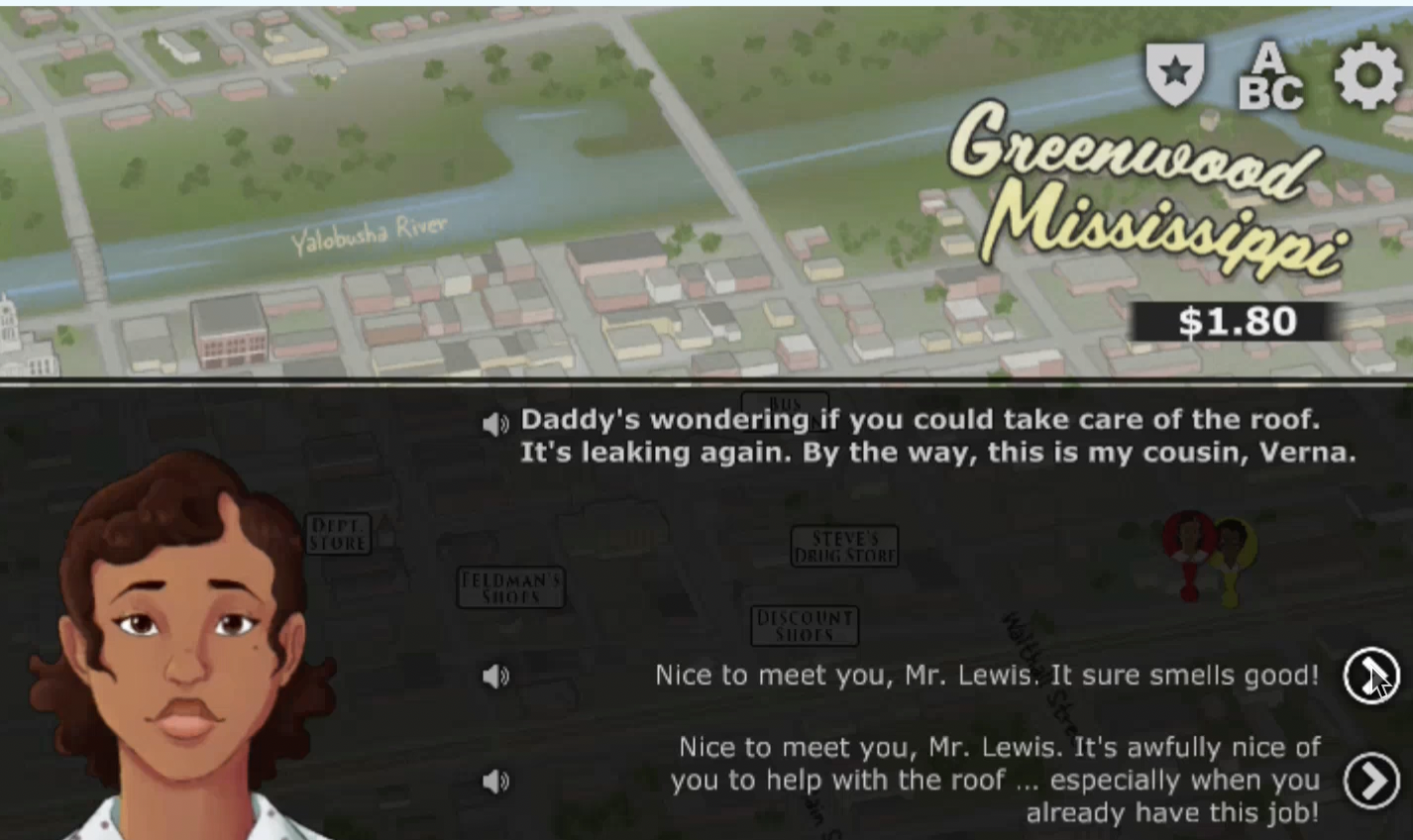The Video Game Your Teacher Wants You to Play

Welcome to Mission US, the vibrant and immersive online video game that allows you to relive history first-hand! Imagine this: it’s 1960. You are Verna Baker, a 16-year-old from Mississippi. How will you take part in the struggle for freedom and equality? Throughout this adventure, you are shown the harsh realities of what it was like to be black during the civil rights movement. You’re directed into a shop to buy a dress but must wait to be served because the white women are given priority. The game makes you decide how you’d react to this scenario, which pushes you to examine your own privilege. What are you going to do?
Stories like Verna’s, as proposed by the game, pushes players to put themselves in the shoes of people from the past. Not only do they learn more about US history, but they get to improve their critical thinking and empathy skills towards others who come from different backgrounds than them. While this game was originally intended for American middle school students, I believe that this game can also be used to engage English foreign language students from non-American backgrounds to help with language acquisition and increase their cultural knowledge, since history, culture, and language go hand-in-hand. The ability of this game to address the humanity of the past by having users role-play what life could have been like for minorities throughout U.S. history could both create empathy in non-American players and give them a personal perspective on what life might have been like in the America of the past.

Image credit: Screenshot of Mission US logo from their promotional video/Melody Gray
Developed in 2008, Mission US describes itself as “an award-winning educational media project that immerses young people in transformational moments from U.S. history”. Their goal is to educate students on sensitive and complex topics in American history through immersive storytelling techniques in order to evoke empathy, critical analysis, and discussion. This is a unique approach to the education of American history, which is an increasingly contentious topic that continues to bring into question what truth and reality actually are, where representing the diversity of the United States and its history poses a challenge even for American classrooms. Growing up in eastern Texas during the 70s and 80s, my dad was always taught in school that the Confederate army deserved to win the Civil War. He grew up with this mindset and it wasn’t until he moved to California as an adult that he began to realize the fragility of the ideologies that he learned as a child.
If history is made up of the stories of many people, then there needs to be greater emphasis on the ordinary people of the past, those like you and me. Mission US offers a potential solution to this lack, as players are asked to rethink the power dynamics behind how history is written and promoted. Photographer and anthropologist Peter Biella believes in the potential of these digital tools to counteract unhealthy power dynamics. In his book chapter on intimacy and interactivity of ethnographic media, he states: “Multimedia’s juxtaposition of imagery with textual analysis not only makes possible new media scholarship but also contributes significantly to our arsenal of weapons against the syndrome of supremacy, which takes the form of sexism, violence, and racism”. Words and images create a powerful combination that, when brought to life through motion, have a disrupting effect. They establish intimate connections between people of different cultural backgrounds that can lead to the fruitful interrogation of stereotypes.

Image credit: Screenshot of Mission US website showing different player adventures/Melody Gray
Meet Iangotiana Ralarosy, an 18-year-old student at the Sorbonne University from Madagascar who speaks French and learned English in middle school. While playing “No Turning Back”, she was delighted in the role-playing element of the game that allowed her to relate well to Verna. “The character, yes. The options, yes. That's exactly how I would react in real life,” she stated, going on to share that “it would be perfect for many kinds of people”. As a non-native English speaker, she was able to appreciate, understand, and empathize with characters from American history. While she did not know much beforehand, she became inspired to learn more after experiencing American history in a new way.
Similarly, after playing “No Turning Back”, Constanze Melz, a Polish-German graduate student from AUP, commented on Mission US’s immersive storytelling techniques that make history come alive in an impactful way. She said “[this game] is about something that's from the past. So it's not real anymore. But it still has an impact. The person playing it [today] can be impacted by the game [which] can lead to actions today”. Despite having extensive previous experience studying American culture in Poland, she was still impressed that such an experiential approach to sensitive topics can create concrete changes in our attitudes towards race relations today.

Image credit: Screenshot of Iangtian playing 1960: The Civil Rights Movement adventure/Melody Gray
Serious history games like Mission US can give us an experiential introduction to the past as a lived collection of stories that continue to influence our socio-cultural interactions today. It makes history come alive as a fun game that appeals to all ages and backgrounds. The proposed stories can effectively impact the player, regardless of their previous cultural framework, in a way that transcends the binary boundaries of history as one narrative. Whether you’re looking for fun, or are curious to learn more, go and play this game! Your teacher may just thank you.





